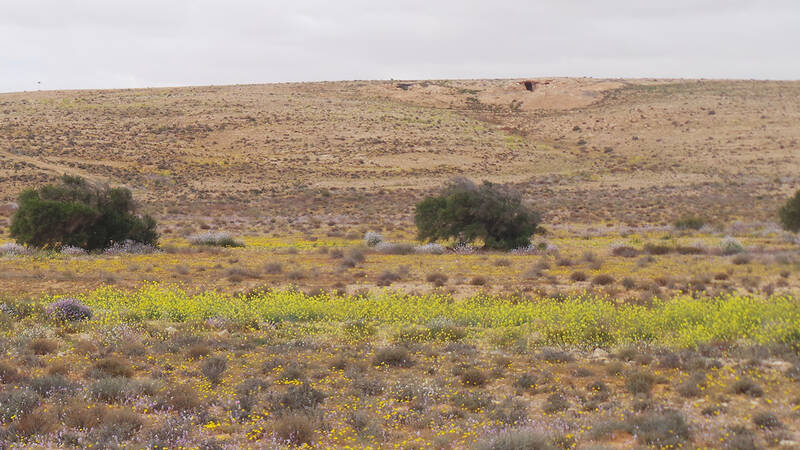An SRM Toolbox for Restoring Degraded Agrosilvopastoral Ecosystems

- Mounir Louhaichi - Research Team Leader of Rangeland Ecology and Forages
ICARDA has developed a site-specific toolbox to manage agrosilvopastoral production systems sustainably in the dry areas, achieving a neutral level of degradation and offering a strong potential to restore degraded rangelands.
Rural family farmers and pastoralists across dry regions in North Africa and Asia depend on rangelands for grazing and forage for their livestock. Yet, in a steadily warming world with rapid population growth, these ecosystems have been severely degraded by a combination of cultivation encroachment, overgrazing, changing climate, and land use.
To safeguard and preserve rangelands, ICARDA, the International Livestock Research Institute (ILRI), and the International Union for Conservation of Nature (IUCN) have developed a Sustainable Rangeland Management (SRM) toolbox for addressing the underlying root causes of agrosilvopastoral ecosystem degradation at the local scale and in different contexts. The SRM toolbox relies on participatory approaches that ensure the involvement of all relevant stakeholders and empowers local pastoral communities to manage their own resources.
Steps considered during participatory rangeland management planning are:
-
Partnership building and stakeholders engagement.
-
Situation and context analysis.
-
Mapping and planning.
-
Reporting and information management.
-
Monitoring and evaluation.
The SRM toolbox also guides land restoration and demonstrates various scenarios to restore degraded lands across different agroecology systems. It combines indigenous knowledge and cutting-edge science-based evidence for site-specific practical solutions.
For example, the toolbox gives indications on when and where to use cost-effective practices such as reseeding, opportunistic grazing, and soil surface scarification – a method that facilitates plants’ growth and enhances ecosystem health. ICARDA and partners also organize training to familiarize pastoralists and technical staff with how to use the toolbox to preserve and revive rangelands.
The flexibility of the SRM toolbox within different agroecological scenarios raises its potential for upscale across the dry areas. Its integration of traditional best practices and improved methods adapted to current biophysical and socioeconomic conditions make it an easy-to-use mitigation tool against droughts and other unfavorable climate conditions and reduces the cost of animal feed for poor dryland agro-pastoral communities.
-------------------------------------------------------------------------------------
IMPACT
-
Tested in Tunisia, the SRM toolbox benefits local communities by enabling forage production for animal feed in areas where it could not previously grow. The SRM toolbox also protects rangelands from land degradation once animal pressure is controlled. A recent study on Tunisian arid rangelands found that during favorable years, a short resting period is a suitable and cost-effective technical option acceptable to pastoral communities to ensure sustainable restoration of arid rangelands.
-
The SRM toolbox has the potential to restore over two million hectares of rangelands in Tunisia alone. The projected results include better management and restoration of dry rangelands, where demand for accessible and productive land is increasing. At a later stage, it could guide not only livestock-related policy, but also technology and investment priorities for programs, development agencies, and decision-makers.

Further Reading:
Mounir Louhaichi, Fethi Ghouhis, Mouldi Gamoun. (12/12/2019). A flexible approach to the restoration of degraded rangelands. Beirut, Lebanon: International Center for Agricultural Research in the Dry Areas (ICARDA). https://repo.mel.cgiar.org/handle/20.500.11766/10498
Mounir Louhaichi, Mouldi Gamoun, Azaiez Ouled Belgacem. (3/12/2020). DIRECT SEEDING: a fast and cost-effective method for large-scale restoration of degraded rangelands. https://repo.mel.cgiar.org/handle/20.500.11766/12231
Mounir Louhaichi. (7/10/2020). Grazing management for improving soil stability, plant health and ecosystem integrity. Lebanon: International Center for Agricultural Research in the Dry Areas (ICARDA). https://repo.mel.cgiar.org/handle/20.500.11766/11918
